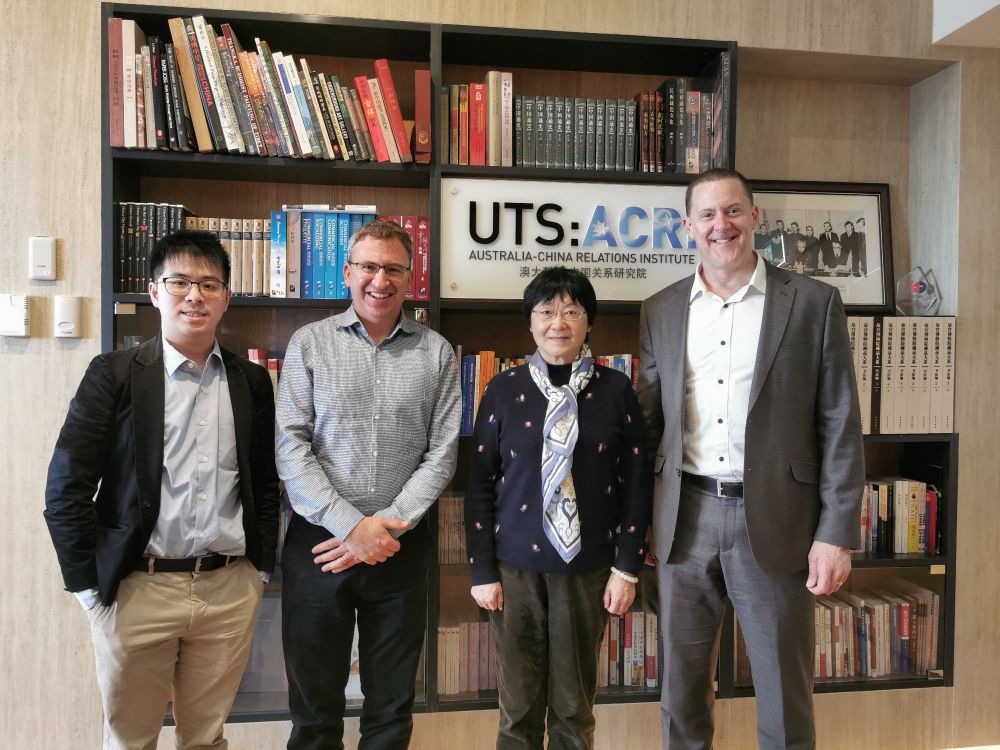Canada-China Relations Under Carney’s Government: Lessons From Australia?
September 4, 2025 Over the last decade, especially since the arrest of the two Michaels, Canada-China relations have sunk to new lows. The economic threats posed by Trump 2.0 have however prompted the Canadian policy circle to reconsider our relations with China. Australia – traditionally a US ally, but has forged close economic relations with China, and has similarly suffered Chinese economic coercion – has seen ups and downs in its relations with China. What lessons could Australia offer to Canada-China relations? This panel addresses these thorny policy questions by featuring experts from Canada and Australia who can speak authoritatively about the bilateral relations with China. About the Speakers L. Philippe Rheault assumed the leadership of The China Institute in 2023 following a 25-year career in the Canadian diplomatic service focused on China and East Asia. Over six postings, he served in Beijing, Taipei, Chongqing (twice), Mongolia, and Guangzhou. He led two of Canada’s four diplomatic missions in Mainland China—as the country’s inaugural Consul General to Chongqing (2012–2017) and later as Consul General for South China, based in Guangzhou (2019–2023). Philippe has witnessed China’s extraordinary transformation firsthand and was directly involved in many of the key milestones shaping Canada-China relations. His extensive network spans government, business, and academia in both countries and beyond, enabling him to forge strategic relationships for the Institute and provide advice to a wide cross-section of leaders. As Director of The China Institute, Philippe aims to position the Institute at the confluence of policy and scholarship—deepening Canada’s understanding of China, exploring China's role in relation to emerging global challenges, and charting paths for informed, productive Canada-China engagement. He also teaches advanced China-focused courses for the Canada School of Public Service and the Canadian Foreign Service Institute. Philippe holds degrees in Philosophy, Political Science, and Law, is a member of the Québec bar, and serves as an Adjunct Professor of Political Science at the University of Alberta. Frequently cited in Canadian and international media, he has authored and co-authored several articles on China and is professionally fluent in Mandarin Chinese, Spanish, English, and French. James Laurenceson is an economist and Director of the Australia-China Relations Institute at the University of Technology Sydney (UTS:ACRI). His academic research has been published in leading scholarly journals including China Economic Review, China Economic Journal, Journal of Contemporary China and Australian Journal of International Affairs. Professor Laurenceson also provides regular commentary on contemporary developments in China’s economy and the Australia-China economic and broader relationship. His commentary pieces have appeared in Australian Financial Review, The Australian, Sydney Morning Herald, South China Morning Post, amongst many others. Lynette Ong is the Distinguished Professor of Chinese Politics at the University of Toronto. A leading scholar of Chinese politics and political economy, she directs the China Governance Lab at the Munk School. She is the author of three books on China and comparative authoritarian politics. Her latest book, Outsourcing Repression, has won seven best book awards. She has been appointed nonresident Senior Fellow at the Asia Society’s Center for China Analysis, and the Asia Pacific Foundation of Canada. She has been invited to deliver expert testimonies before the US Congress and the Canadian House of Common. She frequently offers expert commentaries to international and Canadian media. Her research has won multiple accolades, including the prestigious Social Sciences and Humanities Research Council of Canada Insight Award, the American Sociological Association’s Distinguished Contribution to Political Sociology, the biennial Canadian Political Science Association’s Prize in Comparative Politics, the Human Rights Best Book Awards from APSA, ISA, and ASA, and Honorable Mention of the APSA’s Gregory Luebbert Best Book Award. She is also a recipient of the UofT Faculty of Arts & Science Dean’s Research Excellence Award. Her academic publications have appeared in Perspectives on Politics, Journal of Comparative Politics, Journal of Democracy, China Quarterly, China Journal, among others. Her research has been covered in The Economist, New York Times, New Yorker, Foreign Affairs, Foreign Policy, Wall Street Journal, Washington Post, Globe & Mail, etc.
















